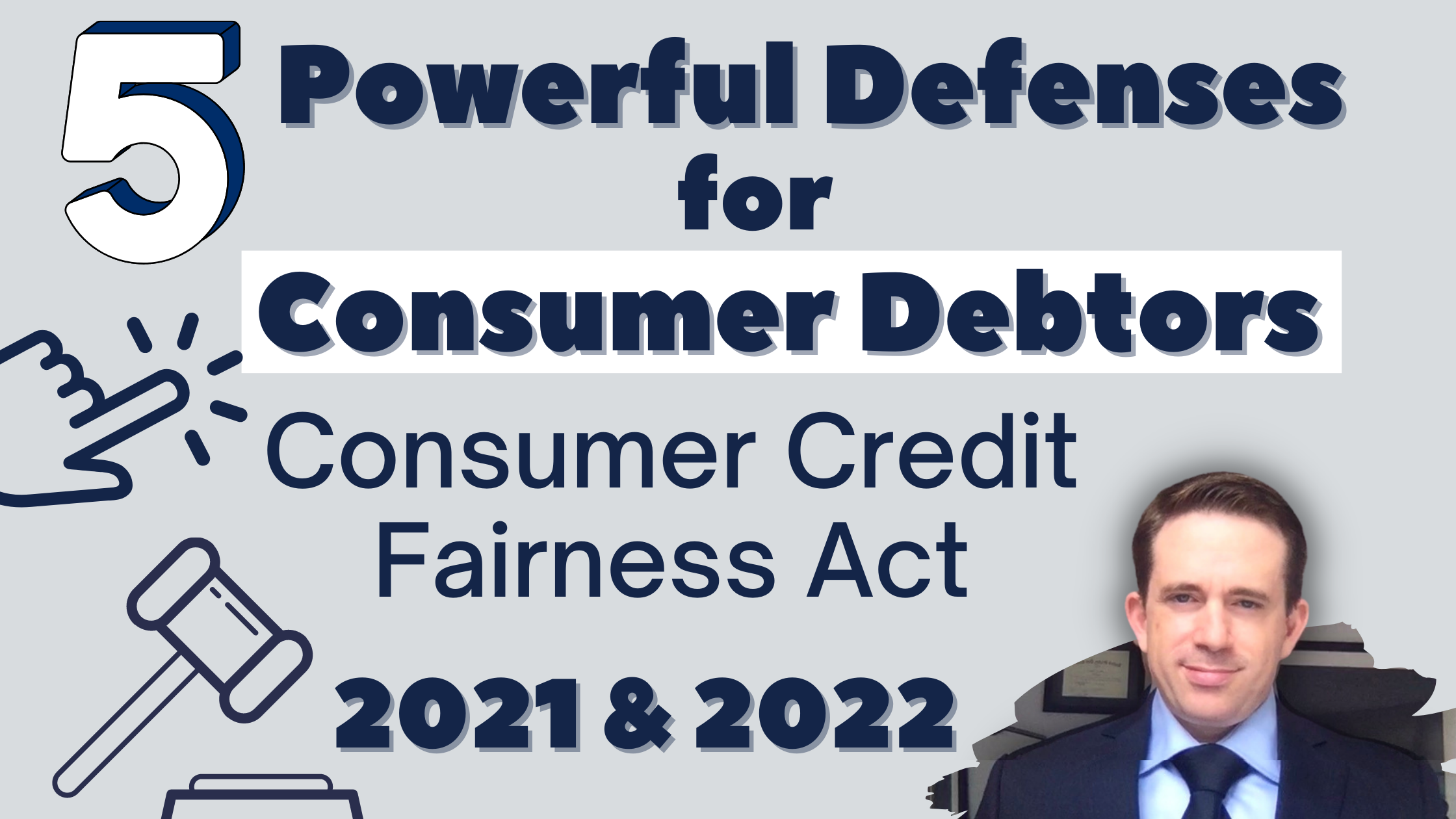We Defend you Against
Midland Credit Management, Inc.
Navigating lawsuits by Midland Credit Management, Inc. can be daunting, but we are here to help. Our consumer-law practice shields you from collection lawsuits, wage garnishments, and bank seizures. Whether it's credit card debt, medical bills, tuition, or other consumer debts, our focus on judgment-enforcement defense ensures your protection. With flexible payment plans, we are ready to support you through summons, complaints, and beyond.
Midland Credit Management
Pandemic Excuse Rejected: Midland Credit Management, Inc.'s Delayed Motion for Default Judgment Leads to Case Dismissal
In the lawsuit Midland Credit Management, Inc. v. Elizabeth Rios, Midland Credit Management sought a default judgment against the defendant due to non-payment of a debt. However, the court denied the motion and dismissed the case, as the plaintiff had failed to provide a reasonable excuse for the delay in filing their motion for a default judgment, even considering the tolling provisions due to the COVID-19 pandemic.
3 Key Points:
- Midland Credit Management attempted to seek a default judgment against the defendant for non-payment of a debt.
- The motion was filed more than a year after the defendant's default, violating CPLR § 3215(c), which requires such applications to be made within one year.
- The court dismissed the case, rejecting the plaintiff's claim that the delay was due to the pandemic, citing a lack of details as to how the pandemic specifically caused the delay.
Case Citation: MIDLAND CREDIT MANAGEMENT, INC. v. Elizabeth RIOS, Index No. CV-000116-20/RI Decided on June 9, 2022.
Contact us to help you with your matter.
Consumer Rights Under The One-Year Rule for Debt Cases: Understanding N.Y. C.P.L.R. 3215
In simpler terms, this section of the New York Civil Practice Law and Rules 3215(c) says that if a party sues you (the plaintiff), but does nothing to move the case forward for a year after you fail to respond (default), then the court won't give them the win by default. Instead, the court will treat the case as if the plaintiff has given up (abandoned) and will dismiss it. This rule kicks in automatically or if you bring it to the court's attention. If the plaintiff can show a good reason why they didn't move the case forward, the court may decide not to dismiss it. Importantly, even if you (the defendant) bring up this rule, the court won't treat it as if you have formally responded to the case (made an appearance).
Consumers should be aware of this provision for two main reasons:
-
Self-Protection: If you're sued and a year passes with no action from the plaintiff, you could potentially have the case dismissed under this rule. This can provide an important safeguard against old or stalled lawsuits.
-
Legal Strategy: Knowing about this rule could influence how you respond to a lawsuit. If the plaintiff seems disorganized or slow-moving, you might decide to wait and see if they fail to take proceedings for the entry of judgment within a year. However, it's important to consult with a lawyer before deciding on this or any legal strategy.
CFPB Reaches Settlement with Encore Capital Group, Including Midland Credit Management, Over Unfair Debt Collection Practices
The Consumer Financial Protection Bureau (CFPB) filed a proposed final judgment to settle a lawsuit against Encore Capital Group, Inc., and its subsidiaries, Midland Funding, LLC; Midland Credit Management, Inc.; and Asset Acceptance Capital Corp., the largest debt collector and buyer in the US. The CFPB accused these companies of violating previous consent orders and financial protection laws through their debt-collection practices. The settlement will require these entities to pay consumer redress, a civil money penalty, and adhere to more stringent conduct provisions.
3 Key Points:
- The CFPB's lawsuit alleged Encore and its subsidiaries violated previous consent orders and the Fair Debt Collection Practices Act (FDCPA) in their debt-collection practices.
- The settlement requires Encore and its subsidiaries to pay $79,308.81 in consumer redress and a $15 million civil money penalty.
- As part of the settlement, these companies will need to make more transparent disclosures to consumers, restrict collection of time-barred debt, and extend adherence to the 2015 consent order's conduct provisions for five more years.
In the case of Sarno v. Midland Credit Management, the Court of Appeals for the 2nd Circuit (New York) upheld the lower court's decision that Sarno failed to establish a claim under the Fair Debt Collection Practices Act (FDCPA). The court ruled that the statement in Midland's collection letter did not contradict or overshadow the debt validation notice, and was not false or misleading.
3 Key Points:
- The court applied the "least sophisticated consumer" standard to determine if Midland's collection letter violated the FDCPA.
- The statement in question, about maintaining rights even if a payment is made within 30 days, did not contradict or overshadow the legally required notice under the FDCPA.
- The court found that Sarno's claim lacked sufficient grounds for relief, leading to the dismissal of the complaint.
Case Citation: Stephen L. SARNO, individually and on behalf of a Class, Appellant, v. MIDLAND CREDIT MANAGEMENT, INC., Midland Funding LLC, Appellee. No. 11–559–cv. Aug. 22, 2011.
Understanding Compliance with the FDCPA: The Impact of the 30-Day Payment Statement on Debtors' Rights
In Sarno v. Midland Credit Management, the letter in question is considered to be in compliance with the Fair Debt Collection Practices Act (FDCPA) because it doesn't contradict or overshadow the notice requirement of the act. Here's why:
-
The statement provides accurate information: According to the FDCPA, a debtor has 30 days to dispute the validity of a debt after receiving the initial collection letter. The statement in question is in alignment with this requirement as it tells the debtor that even if they make a payment within the 30-day period, they can still dispute the debt within the remaining days.
-
No contradiction with FDCPA's intent: The main goal of the FDCPA is to ensure that consumers are treated fairly by debt collectors and are provided with accurate information about their debts and rights. The statement does not contradict this intent because it does not mislead the debtor about their rights or obligations.
-
Doesn't overshadow validation rights: According to FDCPA, a debt collection notice that overshadows or contradicts the validation notice is considered a violation. In this case, the statement in question does not diminish or overshadow the debtor's validation rights, instead it affirms the continuation of these rights even after making a payment within the 30-day window.
Therefore, the statement does not conflict with the FDCPA requirements but rather it offers clarification on how the debtor's actions (like making a payment) might impact their rights, which in turn supports the FDCPA's goal of ensuring that consumers are informed about their rights.
Understanding the Roles of Midland Funding and Midland Credit Management (MCM)
Midland Funding and Midland Credit Management (MCM) are both involved in purchasing defaulted accounts. While both buy debt, Midland Credit Management also services the debts, meaning they handle debt collection communications. So, typically, you might see Midland Funding's name on your credit report but receive collection calls or letters from Midland Credit Management.
These companies are regulated by the Fair Debt Collection Practices Act (FDCPA). They are required to respect your rights and cannot engage in behaviors like harassment, inconvenient timing of calls, threats, or lawsuits after the legal time limit.
They must also observe other consumer protection laws in their debt collection practices.
If you believe they've infringed on your rights as a consumer, consider seeking advice from a lawyer specializing in debt matters as soon as you can.
Contact us to help you with your matter.


